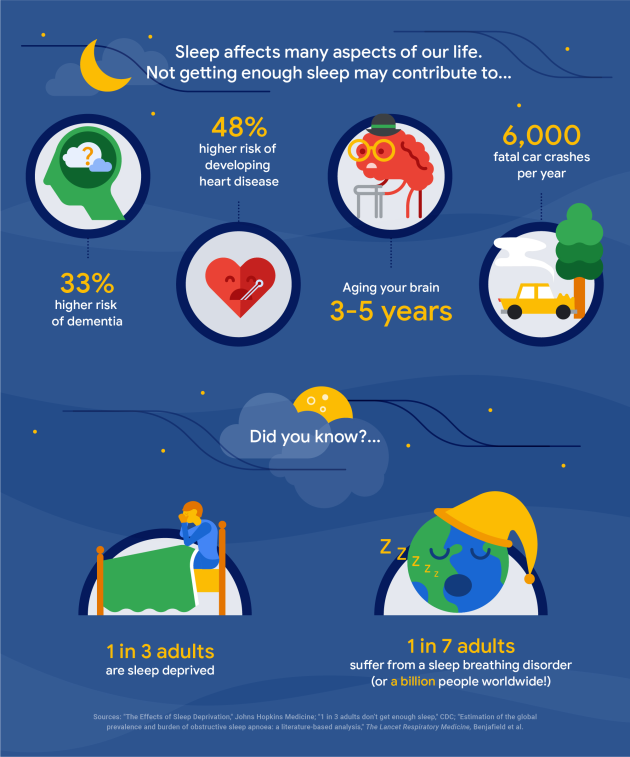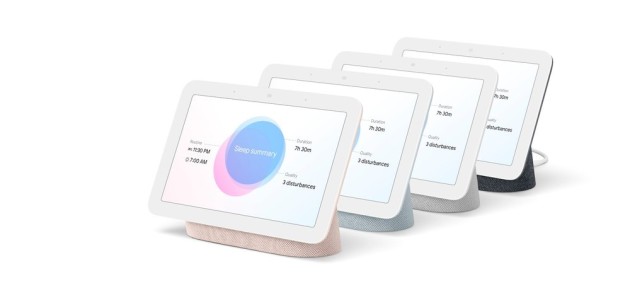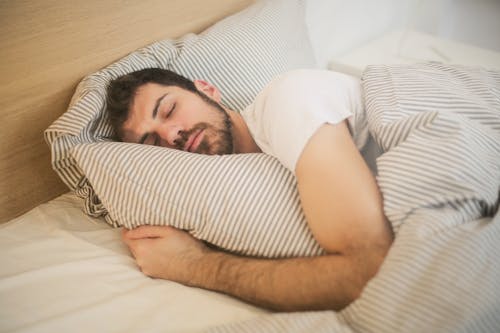
Struggling to sleep? Check out Google’s Sleep Sense solution!
This year has not been a stellar one for people’s health, mental or physical. We’ve never been so focused on wellbeing because we’ve never needed it more with everything that’s happened. With social outlets, normal routine and the certainty of everyday life suddenly stripped away from us, our lives were turned upside down.
When our lives undergo a monumental change of that level, our mental health isn’t going to be unaffected. All the things that go hand in hand with mental health are also going to take a hit; Our diets, our exercise regime and most importantly, our sleeping patterns.
“We know people already come to Google for information and tools to help them live healthier, happier lives, and we’ve specifically noticed more and more questions about sleep, exercise and health. So we decided to bring these kinds of solutions to our second-generation Nest Hub, while also improving what people already love about it” said Ashton Udall, Product Manager at Google Nest.
Lack of sleep is something that can be really annoying if we have a big presentation the next day, or can't concentrate on the simplest of tasks or just generally don't function well on a bad night's sleep. But fatigue due to lack of sleep can actually be dangerous for our health long term. 1/3 of adults are sleep deprived and it can lead to serious problems later on down the line like higher risk of dementia, heart disease and increased brain ageing.

Here to help you meet your sleep goals, the new Nest Hub’s speaker is based on the same audio technology as Nest Audio and has 50 percent more bass than the original Hub. It shows all your compatible connected devices in one place and with a built-in Thread radio, Nest Hub will work with the new connectivity standard being created by the Project Connected Home, making it even simpler to control your connected home.
But our favourite new feature is the sleep tracker! The Nest Hub has always helped you tackle the day; now, it can help you rest well at night. Many of us don’t get enough sleep, which comes with some real risks for not only our physical health but also our mental wellbeing.
In recent years, sleep trackers have become a popular solution. But Google wanted to offer an alternative way for people who may not want to wear something to bed to understand their sleep. The result is Sleep Sensing, an opt-in feature to help you understand and improve your sleep:
Sleep Sensing uses Motion Sense (powered by Soli low-energy radar technology) to analyse how the person closest to the display is sleeping, based on their movement and breathing — all without a camera or wearable. Sleep Sensing can also detect sleep disturbances like coughing and snoring or the light and temperature changes in the room with Nest Hub’s built-in microphones and ambient light and temperature sensors, so you can better understand what’s impacting your sleep and why.

Every morning you’ll receive a personalised sleep summary on your display, or you can view your sleep data anytime on the Nest Hub by asking, “Hey Google, how did I sleep?” Sleep Sensing can also connect to your Google Fit app on Android and iOS devices, so you can see your sleep summary alongside your other health and wellness information on your phone.
It can also tell you how to get a better sleep! Understanding your sleep is an important first step, but you may still have questions about what else you can do to get a better night’s sleep. Sleep Sensing helps by providing tailored bedtime schedules and personalised suggestions for improvement, developed by a team of sleep scientists and using guidance from organisations like the American Academy of Sleep Medicine. Compiled after several nights of analysis, these suggestions point you to notable aspects of your sleep, educate you on why those areas are important and provide suggestions to improve.
It’s built with your privacy in mind, as Sleep Sensing is completely optional with privacy safeguards in place so you’re in control. You choose if you want to enable it and there's a visual indicator on the display to let you know when it’s on. Motion Sense only detects motion, not specific bodies or faces, and your coughing and snoring audio data is only processed on the device — it isn’t sent to Google servers. You have multiple controls to disable Sleep Sensing features, including a hardware switch that physically disables the microphone. You can review or delete your sleep data at any time, and consistent with the privacy commitments, it isn't used for personalised ads.

Even if you choose not to enable Sleep Sensing, you can still fall asleep and wake up easier with Nest Hub. The display dims to make your bedroom more sleep-friendly, and the “Your evening” page helps you wind down at night with relaxing sounds. When it’s time to wake up, Nest Hub’s Sunrise Alarm gradually brightens the display and increases the alarm volume. If you need a few more ZZZs, use Motion Sense to wave your hand and snooze the alarm!
Getting your sleep cycle back on track has never been simpler! The second-generation Nest Hub is available for €99.99 from the Google Store!





